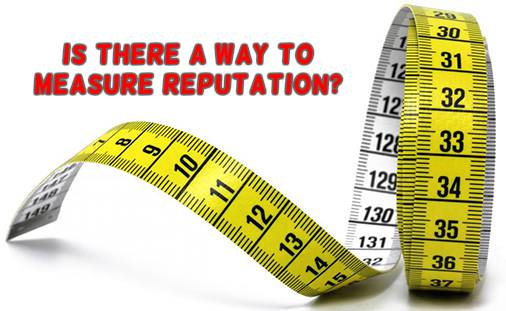We can say that measurement of corporate reputation depends on an assessment of the consumer’s trust in the brand. Then follows the question: can it be built through brand reputation?
Well, it has been proven that brand reputation has a positive impact on trust which is developed when consumers use that brand. Through effective advertising, brands can build their reputation, which in turn leads to building customer trust and credibility.
Reputation management is complex and its measurement is equally complex. This is so, as it is concerned with diverse stakeholder groups and their varied evaluation levels of an organisation. Getting the right level of engagement with stakeholders is a critical factor.
Today we are in tricky times. When true product differentiation is complex, when the regulatory landscape is challenging, when global partner ecosystems are vulnerable, and there is an intense need to attract high-potential talent. And, a company’s reputation is increasingly recognised as a business asset central to maintaining and increasing business value.
Often people ask: “How do you measure corporate reputation?” Perhaps some of these factors can help companies understand and manage their reputational equity and risk.
What drives business goals
Reputation should be measured and understood in the context of your company’s business goals. How effective is it in driving business goals? Long term, reputation measurement and management are most effective when reputational equity and risk are clearly linked to the business outcomes of stakeholders and their own specific, measurable business-supportive behaviors.
And, companies with the most effective reputation measurement programs avoid simply repeating the previous year’s metric but instead, allow the metric to evolve to match their goals.
Through the stakeholders’ eyes
Reputation measurement requires a company to consider all the stakeholders across its reputational landscape. Reputation measurement must take into account the fact that each stakeholder evaluates your company’s reputation through what matters to them. There may be things you take pride in about your company, but these may not the things that drive your reputation in the eyes of your stakeholders. Your view may differ from that of an investor or potential future talent. This means that if a measurement program must be designed, it must allow enough breadth to accommodate the benchmarks by which relevant stakeholders evaluate you.
If you are looking at whether your company is seen as ‘innovative’, a better reputation measurement plan is to understand the impact of a broad range of dimensions that could drive your reputation, out of which one is innovation. The same can be said of ‘ethics’, which again, is vital to a company’s reputation. Ethics is increasingly a driver of reputation, particularly in emerging markets, where how a company engages with society is highly important, even more so, than how it performs and delivers.
Sometimes it has been noted that ethics was primarily about transparency, while in another, it was dominated by ideas related to community engagement. For some stakeholders, it would not be a key driver at all; for them, reputation could most productively impact business relationships, if framed in terms of thought leadership.
So, a range of reputation dimensions must be included in a measurement program, but the ways will vary significantly by industry and by stakeholder. Plus, it should reflect a company’s own unique history too.
Tracking sales patterns
A good reputation with consumers will automatically lead to rising sales. Consumers have indicated that they would avoid buying a product if they do not like the company that backs the product. Additionally, some hesitate to buy products if it is not clear who makes them. The number one thing customers look for in determining the value of the company behind a brand or product is, without a doubt – assurance.
On the other hand, it has been noted that a majority of consumers in four leading markets like UK, USA, China and Brazil preferred more and more to try to buy products made by a company that does good things for the environment or community. So, tracking the sales pattern can be a good indicator.
Monitoring reviews
It is important for businesses to keep tabs on their online reviews. Make it a priority to check out your consumer notices on a regular basis, and to become aware of what exactly people are saying about your products/company. Knowing where your business stands, reputation-wise, is of the essence in today’s review-driven world. The bottomline for businesses is that online reputation is critical, and knowing what conversations are revolving around you – is something you cannot afford to neglect.
Are organisations ready?
Measuring a company’s reputation requires extensive engagement across the organisation. Often it is seen that Corporate Communications spearheads activities. Reputation is the responsibility of a variety of individuals and functions across any corporation, including the Board of Directors and many senior executives whose daily focus is on stakeholder relationships (investor relations, government affairs, dealer chains, employee relations etc). Executing action plans may require engagement from communicators and operational teams around the world, and, often, the PR partners too. Added to this can be the benefit of leveraging research from studies focusing on customer loyalty, media/social metrics, HR surveys, syndicated studies, and so on.
So, you can say that measuring corporate reputation effectively shows actionable strategies to organisations, in order to allow them to manage one of their most important assets and points of risk proactively.






Be the first to comment on "Measuring Reputation"